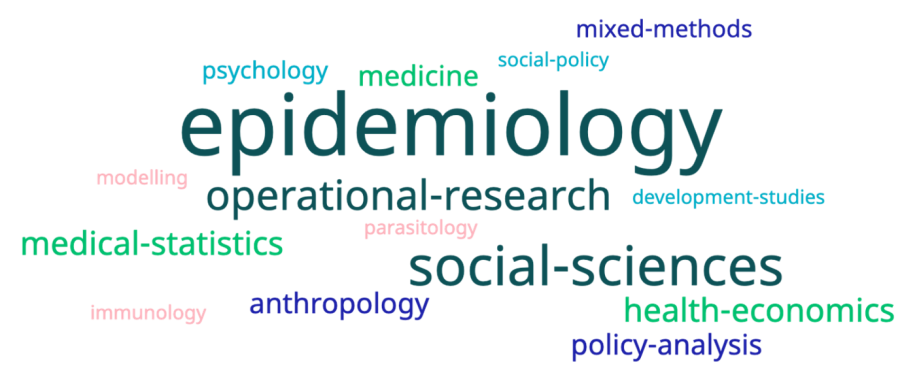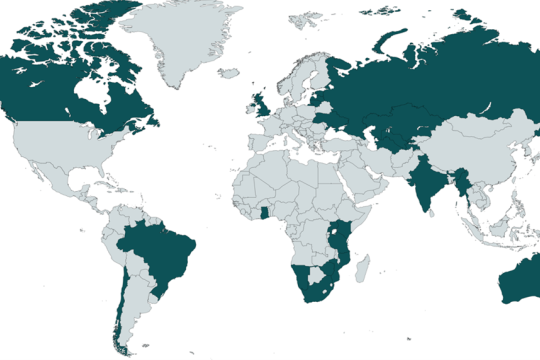
As part of the Student Liaison Officer team, I was struck by the volume of lecturers across my MSc modules who included "Centre for Evaluation" in their email signature. The Centre experienced a quiet COVID-19 period, but with Lucy Platt joining Mitzy Gafos in leading the group as Co-Directors, a hub for Evaluation at LSHTM is truly up and running.
The pandemic has thrust the choice of interventions into the limelight, making evaluation more important than ever to ensure interventions a) work, and b) work as expected. As such, I have decided to dig deeper into the past and present to collate key facts to investigate the Centre for Evaluation’s development.
1. “just setting up my twttr”…
… was not the first tweet from the Centre. A rather more informative “Send us a tweet or email us at evaluation@lshtm.ac.uk and we'll add you to our list of members” was tweeted from the newly formed Centre for Evaluation account in November 2012.
The founding aim was to bring together evaluators working on a range of public health problems in settings across the globe, which still holds true today. The Centre now constitutes ~800 members who share a common goal of improving global health practice through evaluation.
2. Centre members’ backgrounds are truly interdisciplinary
There is no singular magic bullet to being an evaluator. Evaluation is inherently complex given the real-world environment of interventions, necessitating skills across the board to research and understand these environments. The titular word cloud includes the professional fields of the Centre’s Management Team and Steering Committee, exemplifying the interdisciplinarity of evaluation. Expanding the cloud to include all of members’ disciplines would run off the page. Epidemiology appears to be at the heart of the centre – it is necessary but not sufficient for a comprehensive evaluation.
3. Research of the Centre’s Management Team stretches across the globe
The shaded-in countries on the world map are countries members of the Management Team have worked in (which is almost certainly not exhaustive). Their vast experience brings a global perspective on evaluation research, which is applicable across the board in public health. Whether it be health care financing, sexual and reproductive health or trial statistical methodology, evaluation encourages an objective and systematic approach to assessing the effectiveness of programs, policies and interventions across research at LSHTM.
4. Interest in LSHTM evaluation has consistently grown since the Centre’s founding
Mirroring the growing recognition of the importance of evidence-based approaches in public health, the Centre’s internal and external mailing lists have grown by 200% and >400%, respectively, since 2015. The Centre has a presence beyond the LSHTM community, through collaborations, open-to-all events and publications that disseminate research findings.
My fact-finding mission has made it clear that there is no one size fits all for the Centre – in fact the strength of the Centre is the diversity of backgrounds, research areas and geographies of its members. Parallel to the benefits of a mixed methods approach to data collection, different disciplines can complement each other by providing a better and deeper understanding of a problem. As a student, it is an exciting to be a part of such a dynamic and varied community.
Want to learn more about evaluation? Visiting Professor George Rutherford will be drawing on his international experience when speaking on the topic of “Monitoring and evaluation is not a cult. Or is it?” on Tuesday 9 May 2023 17:30 - 18.30 (BST).
LSHTM's short courses provide opportunities to study specialised topics across a broad range of public and global health fields. From AMR to vaccines, travel medicine to clinical trials, and modelling to malaria, refresh your skills and join one of our short courses today.

